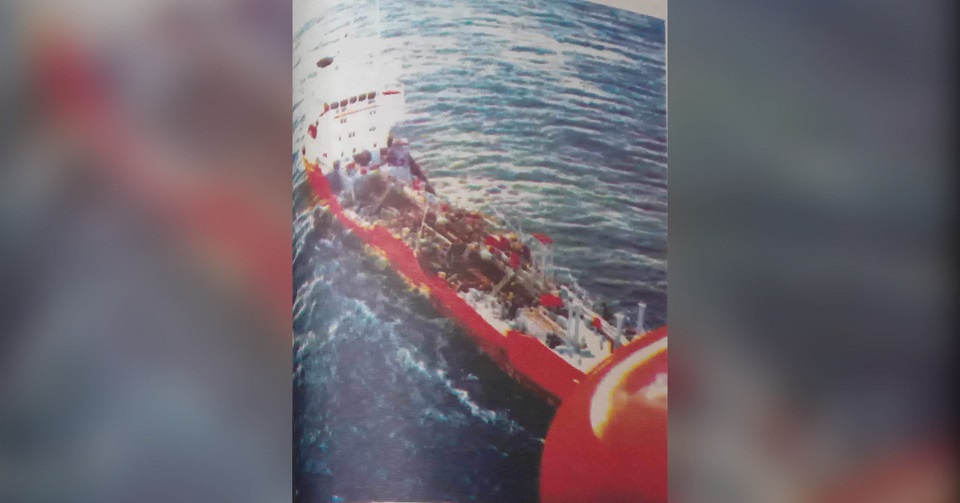When a tanker caught fire off the coast of Northern Scotland in 1999, a Fijian was among the crew evacuated from the ship.
According to an article published by The Fiji Times on March 21 that year, the Multitak Ascania was carrying volatile chemical, vinyl acetate when the fire was detected.
Salolo Atati, 25, of Veisari was a deckhand on the Cypriot-based tanker when the boiler room caught fire.
The tanker was carrying 1750 tonnes of vinyl acetate, a chemical used to make paint, when the incident happened about four kilometres east south east of Dunnet Head, along with the Northern coast of Scotland.
“I am okay thank you, nothing is wrong,” Mr Atati said.
He was in the middle of being interviewed by his bosses over breakfast when The Sunday Times got in touch with him.
Mr Atati, of Tuvaluan origin, had contacted his family in Veisari and informed them that he was safe and unharmed.
He refused to divulge details of the tanker blaze and said his shipping agent who was still unknown had ordered them not to discuss the incident.
The eldest in his family left in December 1998 for Spain where he had boarded the tanker.
Besides Mr Atati, there were eight Tuvaluans, five Croatians and a German captain on board.
They were airlifted from the burning tanker by a coastguard helicopter, despite gale force winds and rough seas.
Four crew members who were taken to a hospital at Wick Three, suffered from smoke inhalation, were later released while one, who suffered a chest injury, had remained under observation.
The only person who sustained serious injuries was a member of the life boat rescue team.
He was airlifted to Raigmore Hospital.
Inverness police liaisons officer Elaine Grimes, said the rescue attempts was made in “very choppy seas, during which the team member sustained a leg injury”.
The failure of the sea rescue attempt forced the air rescue attempt.
Britain’s Pentland Coastguard was alerted to the blaze at 3am on Friday, March 19 (3pm Fiji time), shortly after the crew sealed off the engine room and shut the power.
Ms Grimes said the Stornoway Coastguard emergency towing vessel, Anglian Prince, was on standby to tow the tanker further out to sea.
At 7.30pm Fiji time on Saturday March 20, a coastguard helicopter was still assessing the hot-spots on the vessel using the thermal imaging equipment.
That was to help assess risks of towing the tanker, which had no external signs of fire, further out.
Police had established a 16km danger zone around the vessel where civilian aircraft were prohibited from flying above the area and ships that were coming close.
About 100 villages in the exclusion zone were evacuated to the Britannia Hall in Dunnet Head as a precautionary measure.
Roadblocks were erected and travel was not permitted through the exclusion zone.






